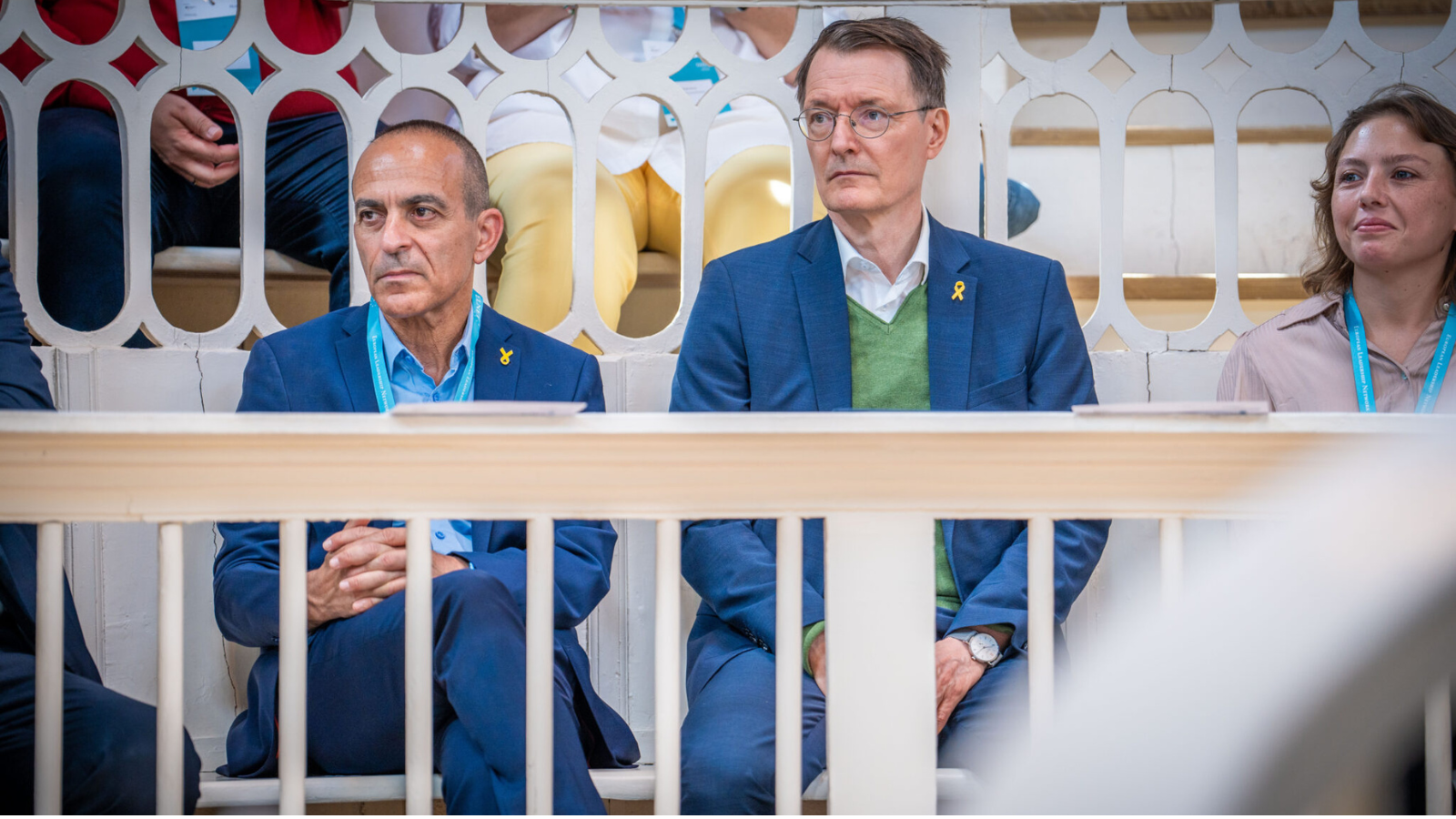The third annual conference of ELNET’s German Israeli Health Forum for Artificial Intelligence (GIHF-AI) brought around 120 German and Israeli stakeholders from the healthcare sector on June 24/25 to Berlin. Prof. Dr. Ronni Gamzu, CEO of the Tel Aviv Medical Center (Ichilov) and GIHF-AI Board of Trustees member, opened the conference with a keynote speech in the historical Charité lecture hall ruin of the Berliner Medizinhistorisches Museum. He revisited three years of Israeli-German health cooperation and encouraged ELNET to continue its important work with its GIHF-AI initiative. This was followed by pitch presentations by Israeli start-ups (Innoccu, Taliaz, Seegnal). The musical program was provided by the Singing Shrinks under the direction of Prof. Dr. Mazda Adli (Chief Physician, Fliedner Klinik Berlin).
On the second day, German Federal Minister of Health, Prof. Dr. Karl Lauterbach MP, commented on the tremendous benefits of healthcare cooperation between Israel and Germany for the advancement of health around the globe in his keynote speech. Minister Lauterbach started with a personal note, expressing his solidarity with the people in Israel, where he himself calls many friends: “I remember sitting with Ran Balicer, drawing on a napkin what later became German law.” He further emphasized the importance of bilateral relations, stating, “Israel is one of the pioneers in the digitalization of healthcare. Germany can learn from Israel when it comes to the use of healthcare data. With two new digitalization laws, we have now started our race to catch up. With the outbreak of the pandemic, our ministries have quickly established communication channels not only at a political level but also at a technical level. We are making good progress, but there is still a lot to do. It is important that we seize this opportunity and continue to work together to harness the full potential of health data and AI to improve patient care. The contacts made in these and many other places as part of the GIHF-AI project are extremely valuable. They will have a lasting effect because they create short communication channels at many levels and thus strengthen our connection to the future.“
Following the minister, Esti Shelly, Director of the Digital Health Unit in the Israeli Ministry of Health, gave a keynote on “Advancing Digital Care – Israel’s Digital Health Journey during crises”. She stated: “Representing Israel, we are pleased to strengthen our successful bilateral cooperation with Germany, with a focus on advances in digital health and AI. In these challenging times, this partnership underscores our shared commitment to using cutting-edge technology to improve public health, mental health, and health literacy. Our bilateral relationship, now in its third year, reflects the strengths of both professional collaboration and personal relationships. This meeting underscores our shared values and strengthens our bond, setting new standards in digital health and ensuring a healthier future for all.”
Insightful panel discussions with high-level speakers from the healthcare ecosystems of Germany and Israel, including a live podcast by “Mehr Einsatz Wagen”, breakout sessions on “Digital Mental Health”, “Ethics and Trust in AI”, as well as “Health & Data Literacy”, followed suit (agenda). The results of the workshops, including policy recommendations that will be shared with the Ministries of Health in Germany and Israel, were presented at the end of the conference, which was moderated by Lirone Glikman (CEO, The Human Factor) and Carsten Ovens (CEO, ELNET DACH).

